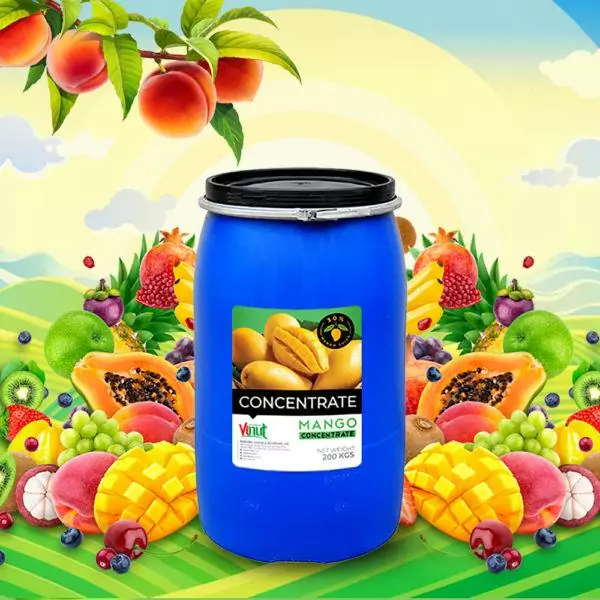Juice Concentrate What It Is, Differences from Real Juice, and Where to Buy

Juice concentrate is a widely used ingredient in the food and beverage industry. This article aims to provide a comprehensive understanding of juice concentrate, including its definition, differences from real juice, and where you can purchase it. Whether you’re a consumer curious about the products you consume or a business owner seeking reliable suppliers, this article will delve into the details and clarify any uncertainties regarding juice concentrate.
What is a juice concentrate?
Juice concentrate is a highly concentrated form of fruit juice obtained by removing water content from freshly squeezed or extracted juice. The process involves evaporating the water through various methods, such as heating or freezing. As a result, the volume of the juice is significantly reduced, while the natural sugars, flavors, and nutrients become more concentrated. The resulting juice concentrate can be stored for longer periods, making it convenient for manufacturers, distributors, and consumers alike.
What is the difference between concentrate and real juice?
The key distinction between juice concentrate and real juice lies in their water content. While real juice is typically consumed fresh and retains its original water content, juice concentrate has had most of its water removed. This removal of water allows for easier transportation, longer shelf life, and reduced storage requirements. However, it’s important to note that during the concentration process, some volatile compounds, such as certain aromas, may be lost or altered, leading to potential differences in taste compared to fresh juice.
What does ‘not from concentrate’ mean?
When you come across the label “not from concentrate” on a juice product, it means that the juice is made directly from fresh fruit without undergoing a concentration process. Such juices are usually packaged immediately after extraction and may go through pasteurization to ensure safety and extend their shelf life. Since these juices contain the natural water content of the fruit, they often have a lighter and more refreshing taste compared to concentrated juices.
Is not from concentrate juice healthier?
The question of whether not-from-concentrate juice is healthier than its concentrated counterpart depends on several factors. While concentrated juice retains the natural sugars, flavors, and nutrients present in the fresh fruit, it may lack certain volatile compounds that contribute to aroma and taste. On the other hand, not-from-concentrate juice, which maintains the original water content of the fruit, may offer a fresher experience but could also contain slightly lower concentrations of certain nutrients due to dilution. Ultimately, both types of juice can be part of a healthy diet when consumed in moderation, and the choice between them may come down to personal preference.
Fruit juice concentrate suppliers
Finding reliable fruit juice concentrate suppliers is crucial for businesses in the food and beverage industry. Here are some renowned suppliers known for their high-quality products:
- VINUT JuiceConcentrates: VINUT Concentrates has been a trusted name in the industry for over three decades. They offer a wide range of fruit juice concentrates, including apple, orange, grape, and more. Their products undergo rigorous quality control measures to ensure consistent flavor profiles and high nutritional value.
Where to buy juice concentrate
If you’re looking to buy juice concentrate for personal use, you can find a wide range of options at various retailers and online platforms. Here are some popular avenues to explore:
Manufacturer’s Website: Check the official website of VINUT or the company that produces it. Many manufacturers sell their products directly to consumers through their websites. If VINUT has an official website, it might have an online store where you can purchase the juice concentrate. Look for the “Shop” or “Buy Now” section on their website to explore the available options.
Conclusion
In conclusion, juice concentrate serves as a versatile ingredient widely used in the food and beverage industry. Its concentrated form allows for efficient storage, transportation, and prolonged shelf life. Understanding the differences between juice concentrate and real juice provides insights into their respective characteristics and helps consumers make informed choices. Additionally, knowing reliable fruit juice concentrate suppliers and where to buy these products ensures accessto high-quality options for both businesses and individuals. Whether you prefer the convenience of concentrated juice or the freshness of not-from-concentrate juice, there are choices available to suit your preferences and needs.
Juice concentrate offers a convenient solution for manufacturers who require consistent flavors and longer shelf life in their products. It can be found in various food and beverage items such as juices, smoothies, yogurts, desserts, and even savory dishes. By using juice concentrate as an ingredient, businesses can maintain flavor consistency throughout different batches and seasons, ensuring customer satisfaction.
On the other hand, not-from-concentrate juice appeals to those who prioritize a closer connection to the natural fruit and enjoy the freshest taste possible. While not-from-concentrate juice may have a shorter shelf life and higher storage requirements compared to juice concentrate, it offers a more direct sensory experience, capturing the essence of the fruit in its original form.
When purchasing juice concentrate, it’s essential to consider factors such as quality, sourcing, and certifications. Reputable suppliers prioritize the use of high-quality fruits, employ efficient processing methods, and adhere to strict quality control standards. This ensures that the resulting juice concentrates meet safety regulations and offer optimal nutritional value.
By understanding the differences between juice concentrate and real juice, consumers can make informed decisions based on their preferences and dietary needs. Some individuals may choose to incorporate both types of juice into their diets, depending on the specific usage or desired taste experience.
In conclusion, juice concentrate is a widely used ingredient that provides convenience, extended shelf life, and flavor consistency for businesses in the food and beverage industry. Understanding the distinctions between concentrate and real juice allows consumers to select products based on their preferences. Whether you opt for the concentrated form or prefer the freshness of not-from-concentrate juice, reliable suppliers and various purchasing options ensure access to a wide range of high-quality juice concentrates. Explore different brands, compare prices, and enjoy the versatility that juice concentrate brings to your favorite beverages and dishes.
